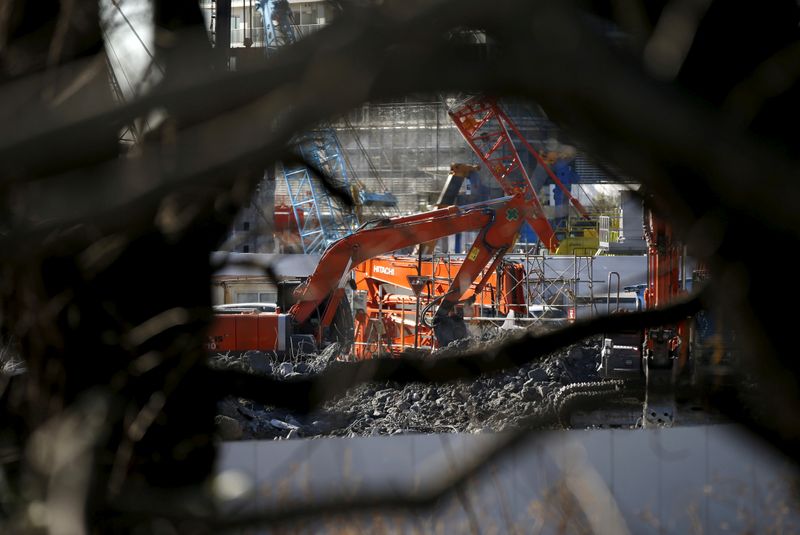By Leika Kihara
TOKYO (Reuters) - Japan's machinery orders unexpectedly rose in May, offering policymakers some comfort capital expenditure has held up despite the hit to corporate profits from the coronavirus pandemic.
But the increase in headline orders was due to demand from the services sector, masking a plunge in external and manufacturing orders, clouding the outlook for Japan's export-reliant economy.
"The gain is likely to be one-off given weak demand from sectors like automobile, capital goods and general-purpose machinery, which hold the key to capital spending," said Takeshi Minami, chief economist at Norinchukin Research Institute.
"Japan's economy may have hit the bottom in May. But capital expenditure likely won't turn for the better as weak demand and the risk of a second wave of infection discourage manufacturers from boosting non-urgent spending."
Core orders, a highly volatile data series regarded as a leading indicator of capital spending, rose 1.7% in May after a 12.0% slump in April, the fastest drop since 2018.
The increase confounded a 5.4% drop projected by analysts.
A 15.5% drop in manufacturers' orders was offset by a 17.7% increase in orders by non-manufacturers, the Cabinet Office data showed on Thursday.
Overseas orders sank 18.5% from May to the lowest level since 2010, a sign the pandemic was hurting global demand.
"Machinery orders are hovering on a weak note," the Cabinet Office said, maintaining its assessment from May.
Japan slipped into recession in the first quarter as the hit from the pandemic added to woes for firms and households already reeling from last year's tax hike and soft global demand.
But capital expenditure has been underpinned by investment demand for automation and technology to offset a chronic labour shortage in the fast-ageing population.
Big firms expect to increase capital expenditure by 3.2% in the current fiscal year to March 2021, the Bank of Japan's quarterly survey showed last week.

The outlook for capital expenditure will be among key factors the BOJ will scrutinise in guiding monetary policy. It is widely expected to hold off on expanding stimulus at next week's rate review, after easing policy in March and April.